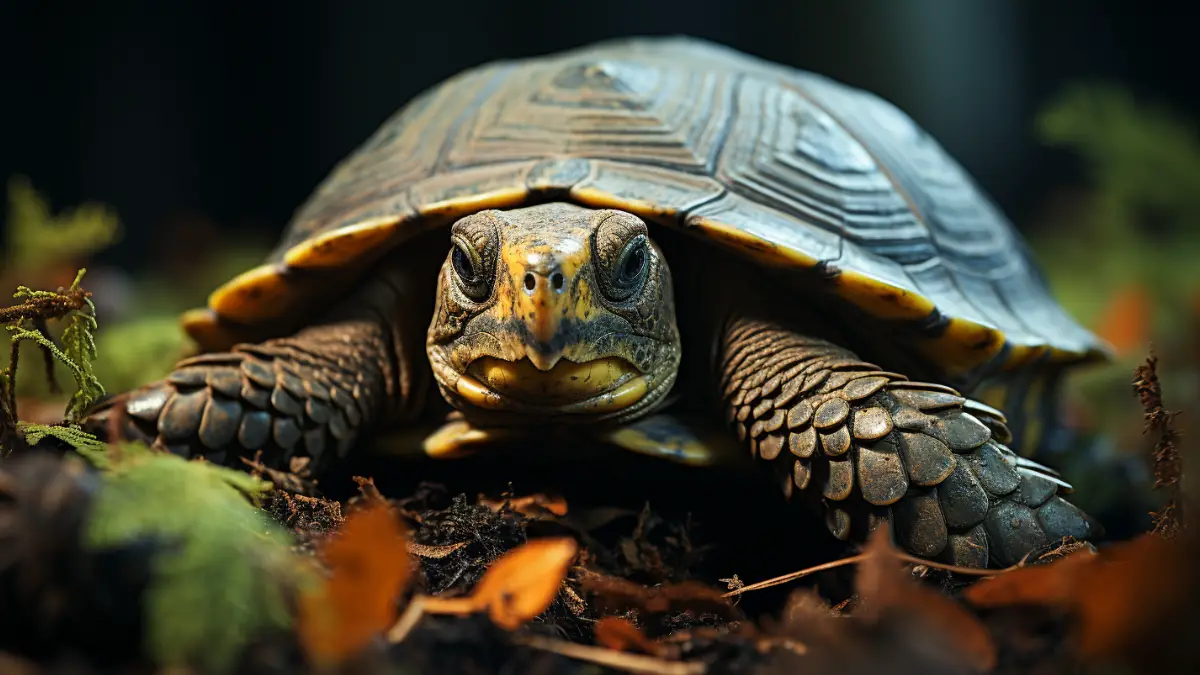Can Tortoises See In The Dark?
Most reptiles are diurnal and do most of their activities during the day and sleep through the night. However, sometimes, you might spot a tortoise roaming around in the dark despite being a reptile.
This often brings up the question, can tortoises see in the dark? Yes. Tortoises can see in the dark and have decent night vision capabilities. However, the sight is not as perfect as that of nocturnal animals. Various things, including the rod cells in their eyes and other sensory organs, help them navigate their surroundings better.
The article focuses on tortoises’ sight at night, including how well and far they can see. Read on.
Can Tortoise See in The Dark?
Contents
Yes. Tortoises can see at night, though not perfectly and only to a certain extent. During the day, they’re known to see quite well and may see more colors than humans do. The presence of the red gene, CYP2J19, allows them to see more shades of red.
Tortoises are diurnal reptiles and like most other diurnal animals, do most of their activities during the day. Unlike nocturnal animals who possess tapetum lucidum in their eyes, they prefer not to move around at night. Tapetum lucidum allows nocturnal animals to see better in low-light areas.
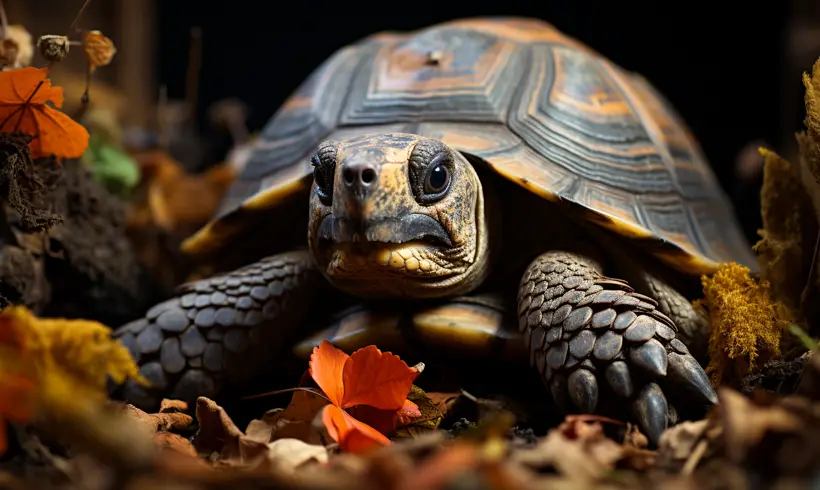
However, their vision and ability to see at night are based on various factors. These factors include;
1. Rod Cells
Rod cells are photoreceptor cells in the outer edges of the eye’s retinas and are found in all animals with eyes. These cells are more sensitive than con cells and mainly aid in night vision.
Tortoises have plenty of rod cells in their retinas, more than those in human eyes and most other reptiles. These cells allow them to see better during the night when needed.
2. Other Senses
Besides their visual advantages that allow them to see fairly better at night, other sensory organs also aid in night navigation. Like humans, when the visual sense is low, other senses become more sensitive.
The tortoises’ sense of smell is among the ones that aid in navigation at night. The tortoise can navigate by following the scent trails they leave as they walk, usually from the chin glands.
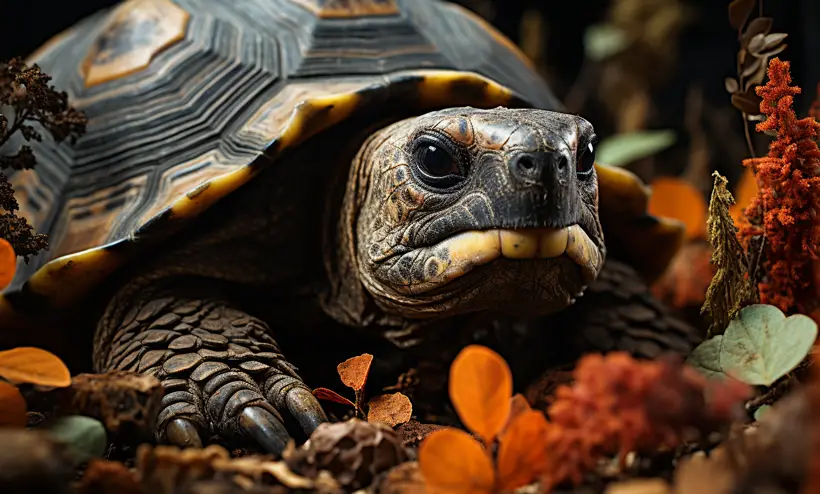
These reptiles also use their sense of touch to navigate through their surroundings. They can use their head and limbs to interact and detect objects around them. They also use these organs to detect the terrain and vibrations in the environment.
The sense of hearing and memory also aid tortoises while navigating at night. Though tortoises’ sense of hearing is poor, they can hear low-frequency (1-182 Hz) sounds and use them to navigate in instances of low visibility. They can also use their memory to remember their way around in darkness.
3. Adaptation Period
Like humans, tortoises require some time to adjust to the low light after a period in light. The period before the dark adaptation is usually between 20 and 30 minutes.
If your tortoise spends a long time in the dark, it’ll eventually adapt and be able to move around better.
Can a Tortoise See Far at Night?
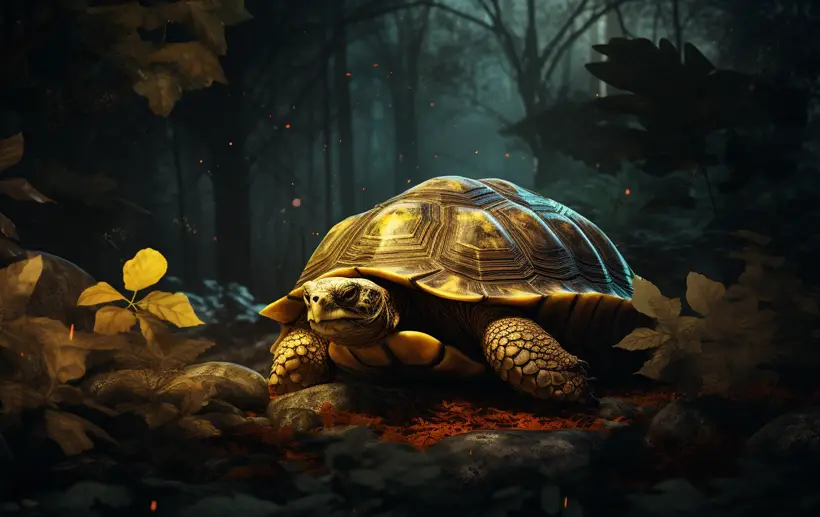
Tortoises’ eyes can detect movements in distances of up to 17 feet during the day, but some species can see further. However, they struggle to focus on details from these distances.
In terms of their sight distance at night, they probably see less than 10 feet, a reason they depend on other senses for navigation. Being a diurnal animal, most of its adaptations allow it to navigate better during the day.
Possible Reasons Why Tortoises Have Better Vision in the Dark
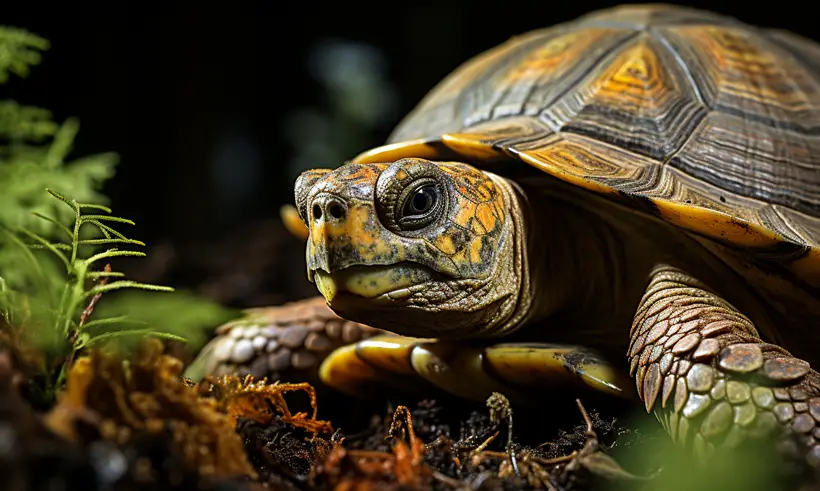
Some possible reasons why tortoises see better in the dark include;
1. They’re Slow
Tortoises are usually slow and take time to reach their foliage destination and back to their burrows. Their slow pace usually means, occasionally, the sun sets when they’re not yet back in their burrows.
The better sight in the dark allows them to navigate their surroundings and locate their burrows after nightfall.
Besides, their slow pace also disadvantages them when getting away from predators. Tortoises’ better sight in the dark allows them to spot movements from their potential predators.
2. They Foliage at Dusk
Another possible reason the tortoises see better in the dark is because some species foliage at dawn and dusk. During this time, the light is low, and the visibility isn’t perfect.
The better ability to see in the dark allows them to locate foodstuffs and spot potential predators.
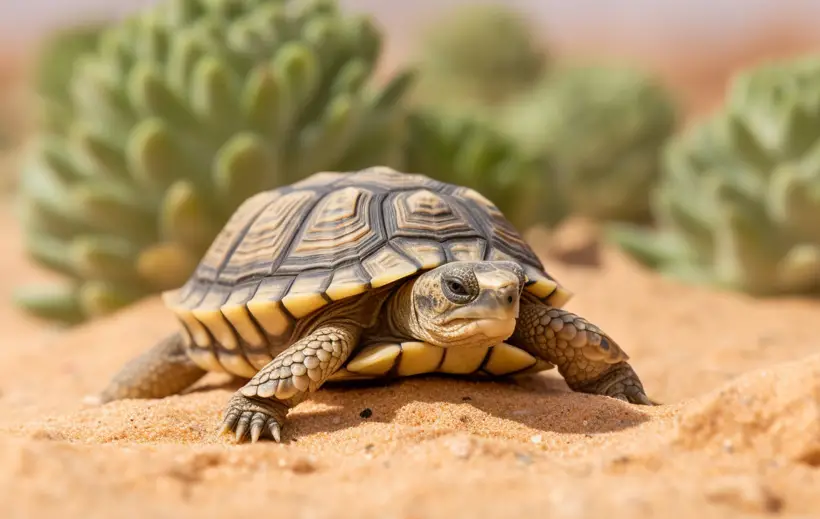
3. Adaptations
Some species spend most of their time in densely populated vegetation where it’s usually dark. With time, their eyesight adapts to the low light environments.
FAQs
While learning about tortoises and their ability to see in the dark, several questions and answers are ideal to know. They include;
Tortoises can see as better as humans can in the dark, though not as clearly. Due to the placement of their eyes on the side of the head, they cannot focus as clearly as humans can. The ability to see more colors also means they have a reddish hue in their sight.
Usually, pet tortoises sleep after nightfall and will not require a night light. Also, they’ll use their ability to see in the dark if they need to walk in the dark. However, for security reasons or heating purposes, especially under veterinarian directives, leave it on.
Tortoises feed in the morning and afternoon and barely do so in the dark. However, they’re opportunistic feeders and may occasionally wake up to feed in the night. However, if you’re feeding your pet, feed it at Dusk and dawn.
Bottom Line
Despite being diurnal animals, tortoises can see in the dark. The numerous rod cells in their retinas help them see better by reflecting more light in dimly lit areas. However, they also use other senses to navigate their environment.
Nevertheless, like humans, they’ll require time to adjust their eyes to the dark. A possible reason their eyesight is better at night is because of the foliage at dusk and dawn.

